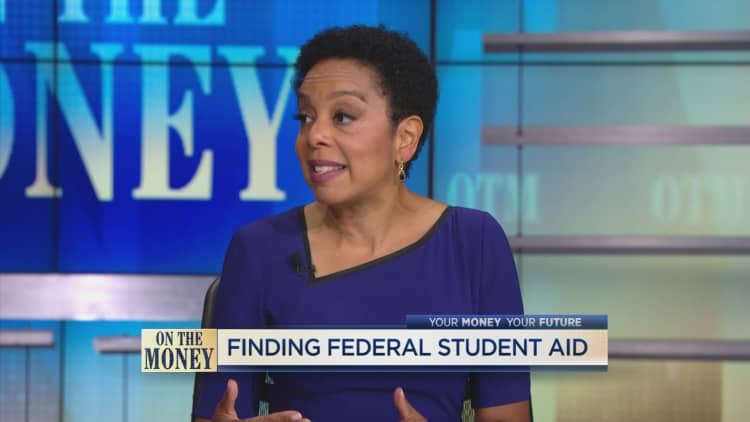
Fewer students are filling out the FAFSA
As of March 8, only 31% of the high school class of 2024 had completed the FAFSA, according to the National College Attainment Network, a 33% decline compared to a year ago.
“We are getting to a point where kids are just giving up on it,” said Anne Zinn, a school counselor at Norwich Free Academy in Norwich, Conn. “They are so extremely frustrated they just don’t know what to do.”
“There’s also a psychological aspect of this,” Kantrowitz added. “Students have no confidence that they are going to get the financial aid they need to make college affordable and they are opting out.”
Under the new aid formula, an additional 2.1 million students should be eligible for the maximum Pell Grant, according to the U.S. Department of Education.
However, given the slower pace of FAFSA applications being submitted, “the number of Pell Grant recipients will be about the same as last year, despite the new Pell Grant formula making it easier for students to qualify,” Kantrowitz said.
“The goal of FAFSA simplification was to increase the number of lower-income students applying. If we have fewer because of a bad rollout, it’s extremely problematic,” he added.
FAFSA completion paves the way to college
Submitting a FAFSA is one of the best predictors of whether a high school senior will go on to college, the National College Attainment Network found. Seniors who complete the FAFSA are 84% more likely to immediately enroll in college.
However, in the past, many families mistakenly assumed they wouldn’t qualify for financial aid and didn’t even bother to apply. Others said a lengthy and overly complicated application was a major hurdle. Some said they just didn’t have enough information about it.
“I never planned to attend college because I knew my mother couldn’t afford it,” said Tikai Harvey, 19, a sophomore at Hunter College in New York. Harvey only learned about the FAFSA her senior year of high school, she said. Before then, “I didn’t know federal grants existed.”
In ordinary years, high school graduates missed out on billions in federal grants because they didn’t fill out the FAFSA. The plan to simplify the 2024-25 form was meant to improve college access.
This year’s rollout has not achieved that, Kantrowitz said. “This is a complete mess.”

